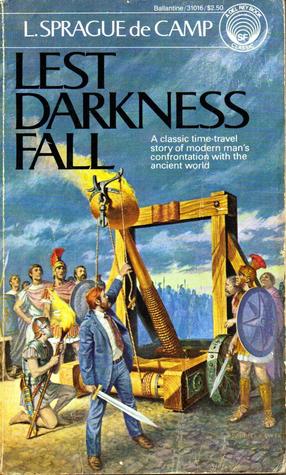Mining the Genre Asteroid: Lest Darkness Fall by L. Sprague De Camp

In late 1930’s Rome, American archaeologist Martin Padway is having a holiday from his dig in Lebanon. Over dinner with his Italian friend Tancredi, a discussion of the nature of time and how a man might change the web of time becomes of eminently practical use when, a few hours later while studying the Pantheon, Martin finds himself cast back in time, to 6th Century Rome. In 535 AD Rome, The Roman Empire is a half century dead, in the West anyway. The Gothic Kingdom rules Rome and Italy. The Byzantines lurk to the East, dreaming of reconquering Italy for the Eastern Roman Empire. Martin himself is a stranger in a strange land, of competing Christian sects and ambitious nobles. Its going to take all of Martin’s wits to not only survive in an alien country, but to forge an even grander scheme. You see, at the cusp of the long slide after the fall of the Western Roman Empire, Martin realizes he is at an important moment of history, and as per his old friend, might be able to tackle the greatest challenge of all: To keep the Dark Ages from occurring. Lest Darkness Fall is a classic time travel story by L. Sprague De Camp. In six decades of writing, L. Sprague De Camp, separately and in collaboration, wrote over 100 books and numerous stories. From straight historical novels like Dragon at the Ishtar Gate to time travel stories like Lest Darkness Fall to reconstituting Burroughs like Sword and Planet stories with the Viagens Interplantarias series, De Camp was a seminal figure of early science fiction and fantasy who quietly but inexorably influenced generations of contemporaries and successors. While the conceit and methodology of sending Padway into the past is clearly just a literary device, once Padway finds himself in Rome, the novel goes into a “hard alternate history” sort of mode. No more fantastic elements. Padway struggles with the language; his Latin is rusty, and it gives De Camp a

